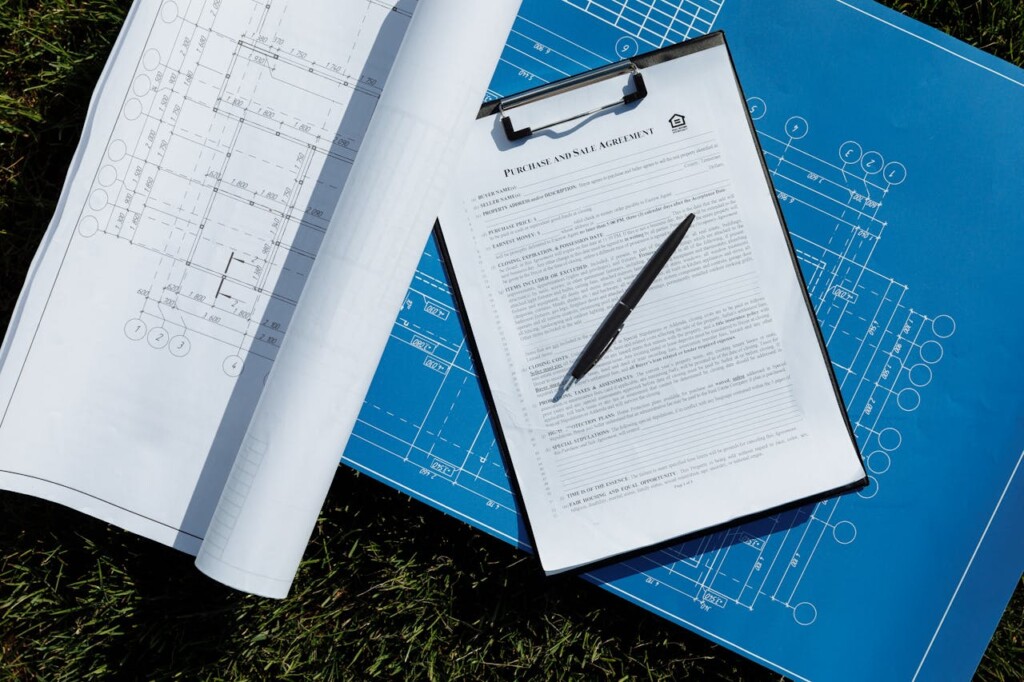Texas alcohol permits require construction teams to navigate a complex web of state and local approvals before breaking ground on restaurants, bars, or retail locations. The TABC permit buildout timeline in Plano connects alcohol licensing steps directly to project milestones through the Alcohol Industry Management System, where applicants submit forms, track progress, and coordinate with local officials. Processing times typically range from 30 to 60 days after submitting complete applications, though this can extend based on permit complexity and local review requirements.
We coordinate these licensing workflows with construction schedules to prevent delays that could impact project delivery. The process spans multiple agencies and involves site plan approval, city council review, certification acknowledgment, and ongoing compliance monitoring after permits are issued. TABC uses two-year fee cycles for most retail permits and private club permits, which affects budgeting and renewal planning throughout the project lifecycle.
What Are The Key Steps In The TABC Permit Buildout Timeline In Plano?

We execute TABC permit applications through a structured sequence that integrates state licensing requirements with local approval processes. The workflow begins with digital submission and moves through municipal reviews before reaching final certification and ongoing compliance phases.
AIMS Application Submission
We start every TABC permit process by submitting applications through the Alcohol Industry Management System. AIMS handles all application types, from retail permits to manufacturing licenses, providing 24/7 access for submission and tracking. The system requires complete documentation including business entity information, location details, and applicable fees before processing begins.
AIMS automatically validates submissions and flags missing requirements, reducing delays that could affect construction schedules. We coordinate with applicants to ensure all required documents are submitted correctly, as incomplete applications cannot advance through the approval process.
Site Plan Approval Process
Local site plan review occurs parallel to TABC processing and represents a critical checkpoint for construction teams. Plano’s Planning and Zoning Department evaluates proposed layouts for compliance with municipal codes and zoning requirements. This review examines building configurations, parking arrangements, and accessibility features that directly impact construction planning.
We work with development teams to ensure site plans reflect the intended alcohol service areas accurately. Changes to licensed premises after approval require additional TABC coordination, making initial accuracy essential for avoiding construction delays.
City Council Review Requirements
City council review provides municipal oversight of alcohol license applications within Plano’s jurisdiction. The process includes public notification periods and potential hearings where community input may influence approval decisions. Local officials assess applications based on zoning compatibility, public safety considerations, and community impact factors.
We coordinate with local government officials to understand specific council requirements and meeting schedules. Teams should plan for potential delays if applications face public opposition or require additional documentation during council review.
Certification Acknowledgment
Certification acknowledgment confirms that all required training, bonds, and regulatory requirements are satisfied before license issuance. This step verifies that applicants have completed seller-server training, posted required bonds, and met all statutory qualifications for the specific permit type.
We ensure certification requirements are addressed early in the process, as missing certifications can delay final approval even when all other steps are complete. The acknowledgment process typically occurs after successful completion of local approvals and AIMS processing.
Ongoing Compliance And Reporting
Post-approval compliance includes quarterly reporting through AIMS and adherence to operational requirements throughout the license term. Licensed businesses must maintain accurate records, submit required reports on schedule, and comply with inspection protocols. TABC’s compliance reporting system tracks operational data and ensures ongoing adherence to regulatory standards.
We coordinate with operators to establish reporting procedures that align with business operations and construction completion timelines. Early planning for compliance systems prevents operational disruptions when businesses begin serving alcohol.
Which TABC License And Permit Types Can Impact A Plano Buildout?
The right permit selection determines construction scope, timeline coordination, and space planning requirements. We organize these permits by operational impact to help teams understand which licenses affect their specific buildout approach.
Retail And Private Club Operations
Mixed Beverage Permits (MB) serve restaurants and bars with full alcohol service, covering wine, beer, and distilled spirits for on-premise consumption. Wine and Malt Beverage Retailer’s Permits (BG) work for wine bars and establishments focused on beer and wine service. Private Club Registration Permits (N) apply to membership-based venues like clubs and private event spaces.
Package Store Permits (P) cover retail alcohol sales for off-premise consumption, while Retail Dealer’s licenses handle both on-premise (BE) and off-premise (BF) scenarios. These retail permits typically follow two-year fee cycles, affecting budgeting and renewal planning during buildout phases.
Manufacturing Classifications
Brewer’s licenses support craft beer production facilities, while Winery permits cover wine manufacturing operations. Distiller’s and Rectifier’s permits apply to spirits production. Each manufacturing permit defines specific production activities, storage requirements, and distribution capabilities that directly impact facility design and construction specifications.
Manufacturing permits often require specialized infrastructure including production areas, storage zones, and tasting rooms. The permit type determines which subordinate authorities become available for expanded operations or distribution activities.
Specialized Authorization Categories
Nonprofit Entity Temporary Event Permits (NT) cover fundraising events and festivals where alcohol sales occur. Consumer Delivery permits enable businesses to provide alcohol delivery services, requiring coordination with pickup and delivery zones during construction planning.
Bonded warehouse permits serve distribution operations requiring secure storage and handling facilities. Manufacturer’s agent permits support sales representation activities, while carrier permits cover transportation operations. Promotional permits enable marketing events and tastings that may affect space allocation during buildout design.
Temporary Event Frameworks
File and Use Notifications cover private events under 500 attendees with alcohol sales below $10,000 wholesale value. These notifications require no pre-approval but must meet specific criteria including property owner authorization and attendance limits.
Temporary Event Approval forms handle larger events or public gatherings that exceed FUN criteria. We coordinate these applications with construction timelines since events may require temporary infrastructure or space modifications during buildout phases.
Licensed Premises Modifications
Temporary modification of premises permits expand licensed areas for seasonal service or special events. These modifications often involve outdoor patios, extended dining areas, or event spaces that require construction coordination.
The modification process allows businesses to adjust their licensed footprint when buildout creates opportunities for expanded service areas. We work with TABC requirements to ensure modifications align with both construction schedules and operational needs for maximum space utilization.
How Should Teams Coordinate Scheduling, Approvals, and Compliance?

Effective coordination between construction milestones and TABC requirements requires strategic timing from project inception through ongoing operations. We build schedules that account for both construction phases and regulatory checkpoints to prevent delays that can derail project timelines.
Integrating AIMS Application Steps With Construction Milestones
AIMS coordination demands that application submissions align with specific buildout phases rather than rushing through regulatory steps independently. We sequence AIMS applications to match construction readiness, ensuring permit reviews don’t outpace physical progress or create approval gaps that stall work.
The Alcohol Industry Management System tracks application progress through distinct stages that correspond to construction checkpoints. Each AIMS milestone connects to measurable construction deliverables, allowing teams to validate readiness before advancing to the next regulatory phase.
Coordinating With Local Government Officials and TABC Resources
Local TABC office guidance provides essential direction for navigating permit sequencing and addressing site-specific requirements. These offices understand municipal variations and can clarify how local approvals integrate with state licensing processes.
Schedule alignment requires planning around local government officials’ review cycles and meeting schedules. City council review sessions operate on fixed calendars, and site plan approval processes have defined timeframes that must factor into overall project scheduling.
Managing Licensed Premises Changes During Construction
Construction modifications often affect licensed premises boundaries, requiring proactive coordination through TABC’s temporary modification of premises process. We plan for potential layout adjustments early in design phases to avoid compliance complications during buildout.
When premises modifications become necessary, teams must balance construction efficiency with regulatory compliance. The temporary modification process allows licensed areas to expand or contract while maintaining operational compliance, but timing these requests requires careful coordination with construction schedules.
Establishing Post-Approval Compliance Monitoring
Quarterly reporting and ongoing compliance monitoring begin immediately after license approval, creating operational obligations that extend beyond construction completion. We establish reporting cadence procedures during the buildout phase to ensure seamless transition to operational compliance.
Post-approval needs include maintaining accurate records, conducting required inspections, and submitting timely reports through AIMS. These compliance requirements affect long-term facility operations and must be incorporated into project handover procedures and ongoing management protocols.
What Fees, Bonds, And Documents Should Plano Projects Plan For?
The financial framework for TABC permitting involves structured costs, security requirements, and ongoing obligations that affect project budgets and operational planning. We factor these elements into construction schedules to prevent delays and cost overruns during the buildout timeline.
TABC License And Permit Fees
The TABC License and Permit Fees Chart outlines two-year fees for retail permits, private club permits, and subordinate authorities. Mixed Beverage Permits range from $5,300 for original applications to $2,650 for renewals, while Wine and Malt Beverage Retailer’s Permits cost $1,900 for two-year terms. Private Club Registration Permits vary from $2,600 to over $6,000 depending on membership size and structure.
Manufacturing permits follow different fee structures, with Brewer’s Licenses, Distiller’s and Rectifier’s Permits, and Winery Permits each requiring $3,000 for two-year terms. Distribution-level permits like General Distributor’s Licenses cost $3,500, while Wholesaler’s Permits reach $4,000 for the same period. We incorporate these costs into project budgets early to avoid funding gaps during permit acquisition.
Bond Requirements For TABC Permits
Conduct surety bonds apply to retailers without Food and Beverage Certificates, with amounts determined by proximity to public schools. Businesses located more than 1,000 feet from schools require $5,000 bonds, while those within 1,000 feet need $10,000 bonds. Performance bonds of $2,000 apply specifically to businesses in Bexar, Harris, Dallas, or Tarrant counties holding Retailer Dealer’s On-Premise Licenses or Wine and Beer Retailer’s Permits without Food and Beverage Certificates.
Fee interest bonds become necessary for specialized brewing arrangements. Companies participating in alternating brewery proprietorships or contract brewing arrangements must post $30,000 bonds if they hold Brewer’s Licenses or Nonresident Brewer’s Licenses without owning fee interests in brewing facilities. These bonds can be submitted as traditional surety bonds, letters of credit, or certificate of deposit assignments through the AIMS system.
Renewals And Long-Term Planning
TABC’s two-year renewal cycles affect operational planning and cash flow management throughout project lifecycles. The AIMS system supports renewal applications and permit updates, streamlining administrative processes for ongoing compliance. Mixed Beverage Permit renewals cost $2,650 compared to $5,300 original fees, creating predictable expense patterns for established operations.
We coordinate renewal timelines with construction phases and occupancy schedules to maintain uninterrupted operations. TABC provides renewal notices through AIMS, and early planning prevents last-minute complications that could affect business continuity. License modifications, temporary premise adjustments, and additional authorizations can be processed through the same system, supporting operational flexibility as business needs evolve.
Final Words

In conclusion, navigating the TABC permit buildout timeline in Plano is a complex undertaking that requires meticulous coordination between regulatory agencies and construction teams. A successful project hinges on strategically aligning the digital AIMS application process with local site plan approvals and city council reviews, ensuring every step is synchronized with construction milestones. By proactively managing permit selection, financial requirements like fees and bonds, and post-approval compliance, developers can prevent costly delays and ensure a smooth transition from groundbreaking to a fully licensed and operational establishment.
Need help managing the complexities of your next construction project? Contact EB3 Construction to discuss your operational and recycling needs today.




